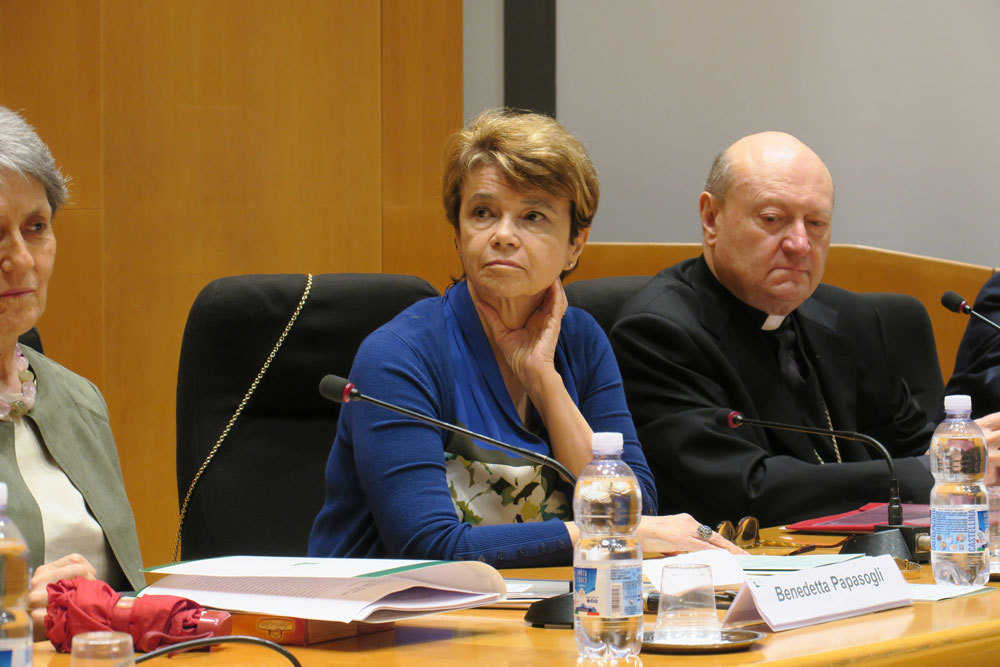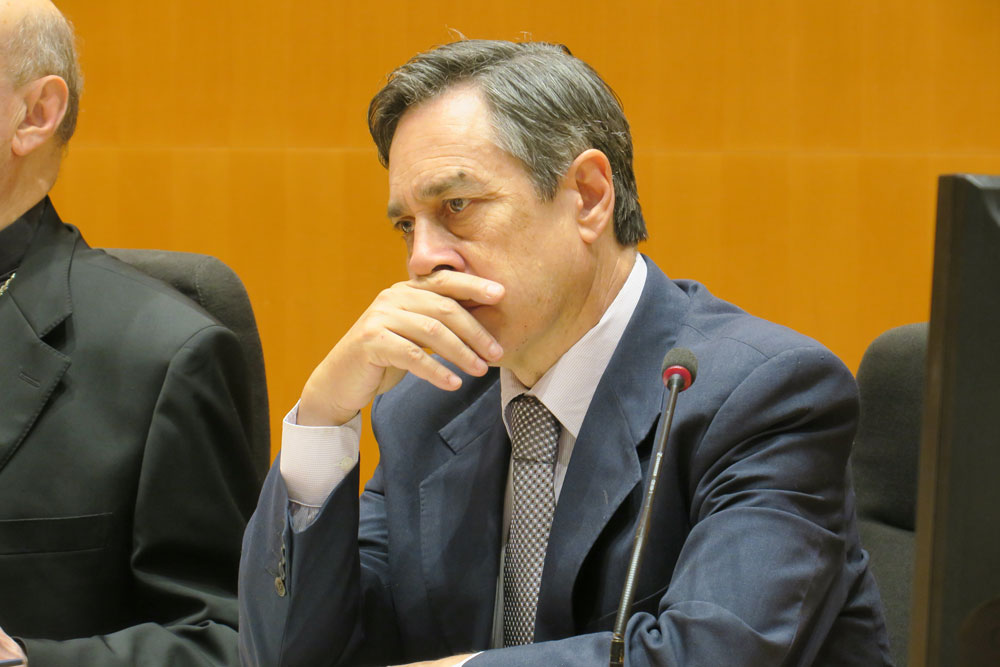Le Séminaire de 2025 – Humanisme de l’Espérance
Téléchargez ici le poster, le programme detaillé e les résumés.
Greetings
Francesco Bonini, Rector of LUMSA University (Italy) (video)
Caterina Fiorilli, Head of Human Studies Department of LUMSA University (Italy) (video)
Introduction
Stefano Biancu, Coordinator of the PhD program “Contemporary Humanism”, LUMSA University (Italy) (video)
Keynote lectures (click on the title to watch the video)
Bishop Paul Tighe, Vatican Dicastery for Culture and Education (Vatican City State), Humanism of Hope in the Age of Artificial Intelligence
Emmanuel Falque, Institut Catholique de Paris (France), Survival and Creation
Robyn Horner, Australian Catholic University (Australia), What Can the Humanist Hope for?
Fernando Arancibia Collao, Pontificia Universidad Católica de Chile (Chile), Common Good and Social Welfare
Zaida Borges Charepe, Universidade Católica Portuguesa (Portugual), Hope and Integral Health: Nurturing a Human-Centered Approach
Chiara Pesaresi, Unversité Catholique de Lyon (France), Hors d’attente. Rethinking Hope with Henri Maldiney
PhD Students’ Presentations (click on the title to watch the video)
- Enrico di Meo, LUMSA-ICP: Imaginative Variation on Power: Ricœur’s Take on Utopia
- Gianluca Michelli, LUMSA: The Non-Person. Benveniste and Ortigues on the Role of the Third Person
- Tomaso Pignocchi, LUMSA-ICP: Language and Emptiness. Toward a Non-Foundational Soteriological Epistemology
- Orlando Garcia, ICP-LUMSA: Hope and the Total Value of Human Existence
- Jan Juhani Steinmann, ICP-LUMSA: Disquiet, Freedom and Hope. On the Dialectics of Possibility and Impossibility
- Sarah Horton, ICP-ACU: Maine de Biran on the Limits of Science and the Self
- Carlo Maria Simone, UCP-LUMSA: Hope Beyond the Apocalypse: An Ovidian Myth in the Road by Cormac McCarthy
- Alessia Cadelo, LUMSA-UCP: The Multidimensional Concept of Autonomy and Hope
- François Deshors, UCLy-LUMSA: Postmodernity and Disenchantment: Hope Confronted with the Illusion of Omniscience
with the Development of Artificial Intelligence - Jèrèmie Supiot, UCLy-LUMSA: What is Constructivism?
- Costanza Vizzani, LUMSA-PUC: Surrogacy in the Feminist Debate
- Cecilia Benassi, LUMSA: Pavel Florensky and Hope between Poetry and Apocalypse
- Flavia Chieffi, LUMSA-UCLy: Hope as a Figure of Human Historicity: Time and History in Virgilio Melchiorre’s Philosophy
- Giuseppe Vena, LUMSA: Some Notes for a Genealogy of Confession: Foucault and the Christian Alethurgy
- Lorenza Zucchi, UCLy-LUMSA: Invisibility and Passibility of Aesthetic Experience: Perspectives from Michel Henry and Henri Maldiney
- Giammarco Basile, LUMSA-PUC: Flaminio Piccoli, the DC and the South America
- Francesco Marcelli, LUMSA: Hope and Optimism among Italian Catholic University Students during the Post-War Period
- Matteo Mostarda, LUMSA: Enrico Mattei’s Approach to International Relations
- Riccardo Maria Sciarra, LUMSA: The Long Road to the EPP: A Historical Analysis of Christian Democratic Cooperation in Europe
- Victoria Bauer, LUMSA-UCLy: Hope in Philosophical Posthumanism
- Federico Rudari, UCP-LUMSA: Disorientation and Movement in Anne Imhof’s Natures Mortes
- Marco Valerio, LUMSA-UCP: Challenges in Integrating Civic and Citizenship Education and Education for Sustainable Development in Initial Teacher Education for Pre-Primary and Primary Education: Preliminary Findings from Two Italian Case Studies
- Giacomo Chironi, PhD, LUMSA: Between Forgiveness and Hope

























































